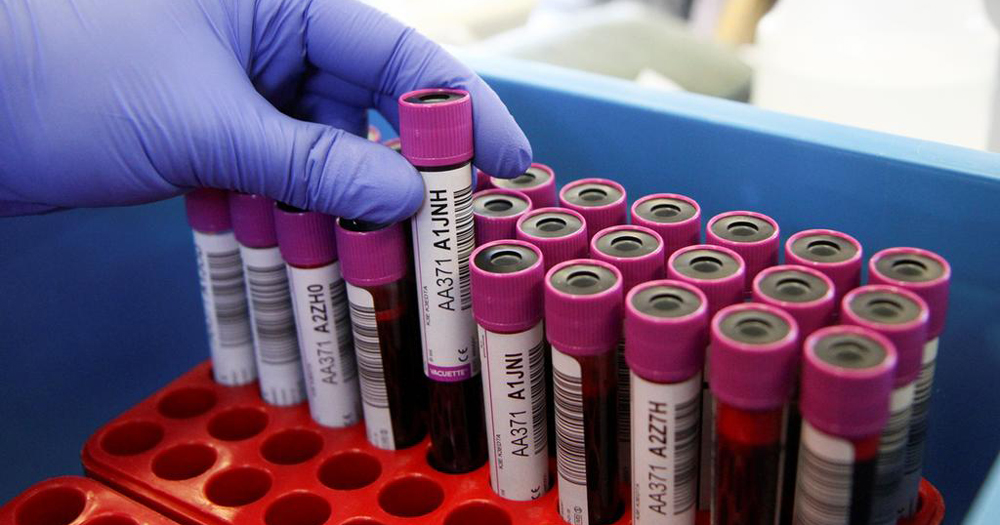This week health authorities in Britain and Northern Ireland announced a major step forward in how blood donation is viewed by donation services across the United Kingdom.
From Summer 2021, all prospective blood donors will be assessed by blood donation services in England, Scotland, Wales and Northern Ireland on the basis of their individual risk to the collective blood supply, regardless of their sexual orientation or sex.
From the 1980s to 2011 (when a new twelve-month ban on sexually active gay and bisexual men came into force), Britain imposed a blood donation blanket ban from any man who had ever had sex with another man. This change only found its way to Northern Ireland in June 2016. The Republic of Ireland matched this in January 2017. The ban remained unchanged until 2017 in Britain and April 2020 in Northern Ireland, when it was replaced with a blanket three-month ban. From next summer things will be different, for the first time.
The question for those of us living in the Republic, who continue to face a twelve-month blanket ban, has to be, what does this mean for 26 of the island’s 32 counties? Is the South next?
I’m a blood donor. It’s been part of my identity and sense of self since I began donating shortly after my eighteenth birthday. Blood donations are always desperately needed, but this year in particular, as the ability of people to donate took a significant hit from the pandemic. It was with this in mind that I decided I would need to donate as much as possible this year.
Five months ago, I found myself in the position of not being allowed donate in the Republic. I did what many have done before me when faced with institutional prejudice in the 26 counties. I looked north and to the part of this island that in many ways could offer something better. The ban there was three-months and I fell comfortably outside that restriction.
I emailed, then later phoned, the Northern Ireland Blood Transfusion Service to ask if they would accept blood donors from south of the border. They confirmed that they would and with that I made my appointment over the phone, then quickly booked my train.
A week later I was in Belfast, and while the journey north had taken less time than a train journey from Dublin to Galway, it struck me very early that this was a different place. I was very conscious of the fact I had gone away to donate blood.
The staff at the clinic were incredibly friendly and upbeat and we flew through the donation process. Within a few hours I was home again in Dublin.
Sitting on the train going back to Dublin though, I wondered what inside me changed so fundamentally between one part of Ireland and the other. One minute my blood was considered safe and eligible for use by hospitals. Within a second though, and without doing anything at all, only crossing an invisible border, health authorities would automatically label my blood as being an active threat to the safety of patients in hospitals.
The obvious answer is that either the north is wrong or the south is. I believe it is us, in this modern so-called republic that is wrong. This is made even more pressing in light of this week’s announcement. The message for gay and bisexual men in the Republic seems to be: “Your blood is fine for the 1.8 million up there in the North, but it’s a danger here in the South, so go away somewhere else if you want to donate.”
I know there will be people who will say “If they don’t want my blood, why should I bother?” or “By crossing the border to donate, you’re giving in to them”. I understand the anger and sense of injustice. I’m angry too. For a number of years, I have fought prejudicial, irrational and unscientific blood donation policies in this country. I continue to fight that battle. But I am a blood donor. I value civic duty above most other things, whether that duty takes the form of donating blood, or voting, or abiding by public health advice during a global pandemic.
But, I firmly believe we shouldn’t have to travel north or across to England or anywhere else just to perform this very basic and simple civic duty. We should be able to donate safe and desperately needed blood here, and be treated with the same dignity and respect afforded to others.
For a third time in just a short number of years, we have fallen far behind Northern Ireland in treating gay and bisexual men who seek to donate blood with dignity and respect. From Summer 2021, we will be two steps behind our neighbours in the 6 counties. So, to mirror the now famous ‘The North is next’ sign held up in the crowd at Dublin Castle on 26 May 2018, can we now say the South is next?
© 2020 GCN (Gay Community News). All rights reserved.
Support GCN
GCN is a free, vital resource for Ireland’s LGBTQ+ community since 1988.
GCN is a trading name of National LGBT Federation CLG, a registered charity - Charity Number: 20034580.
GCN relies on the generous support of the community and allies to sustain the crucial work that we do. Producing GCN is costly, and, in an industry which has been hugely impacted by rising costs, we need your support to help sustain and grow this vital resource.
Supporting GCN for as little as €1.99 per month will help us continue our work as Ireland’s free, independent LGBTQ+ media.
